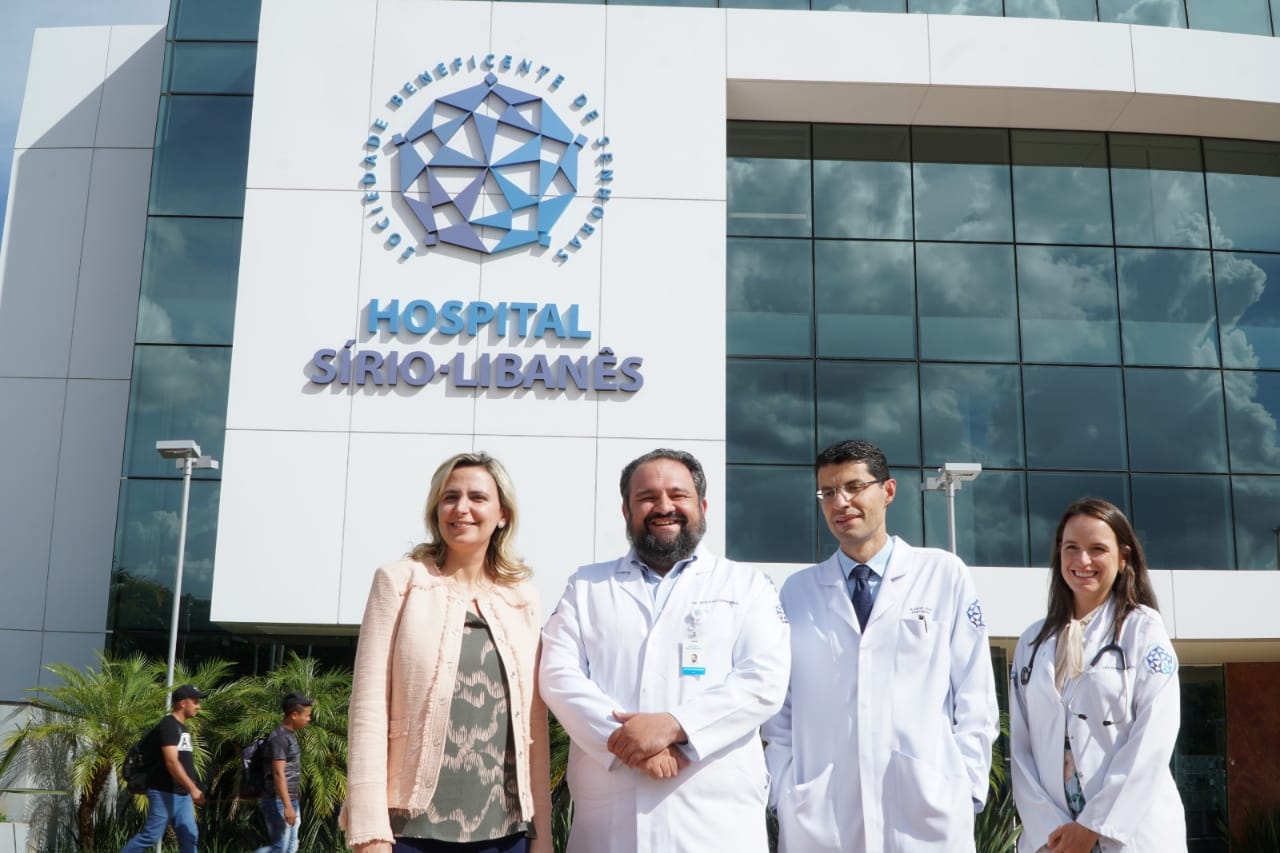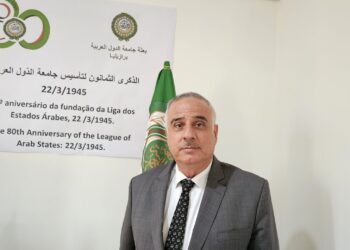Unit will have service in six specialties and will be the first unit outside São Paulo with investments of R $ 260 million. Ambassadors of Syria and Lebanon are among the invited
Raquel Pires
Brasília will have a unit of the Syrian-Lebanese hospital at 613 Sul that will start operating on next February 18 th. Even with an Oncology Center already present in the DF since 2011, the hospital brings its first unit out of São Paulo with expanded medical specialties. In addition to oncology and diagnostic medicine, it will provide care in areas such as cardiology, neurology, orthopedics and emergencies.

With investments of R $ 260 million, more than 450 formal jobs will be created, in addition to 130 outsourced workers, and R $ 60 million will still be invested, which will bring the number of jobs to 800 by 2022. Gustavo Fernandes, director-general of Syrian-Lebanese, the professionals will make all the difference to the hospital. “The large and modern facilities and the most advanced technologies are very important, but people will look for our hospital, above all because of the differential of the people who work here.”
With more than 30 thousand square meters, the hospital will have 144 common beds and 30 critical beds. There are also two units for obese patients, with differences in furniture, in the flow and at the entrance of the beds and another two for patients who want more space, whose rooms are larger, with ante room, office and view to the L2 Sul.
In addition, the hospital will have six state-of-the-art operating rooms equipped with the Da Vinci surgical robot. According to the cardiologist and director of critical patients at the Syrian-Lebanese hospital, Ludhmila Abrahão will make all the difference in the safety and optimization of doctors’ work. “Through the robot, the doctor can observe the patient in a three-dimensional way and operate it more accurately,” he says.

Among the novelties, the anesthetic cart Bis, which monitors the depth of the anesthesia to not pass the point. “Many hospitals measure the dose of anesthesia by weight and this can lead to an excess. This device prevents this, “said Ludhmila Abrahão. Another action implemented by the hospital is the open visit to patients, aiming to humanize the ICU and bring the patient closer to healing and the real world. The idea is that the companions can stay with the patient in the ICU 24 hours a day, also helping in the mobility through the machinery of last generation of the room.
EXPANDING ACCESS – Even though it is a philanthropic institution, Syrian-Lebanese is managed as a private institution, where the patient pays the bill. The cost of Syrian-Lebanese is high, but the hospital plans to build other forms of payment through covenants and health plans. The Syrian-Lebanese Oncology Center, inaugurated in 2011 already follow prices close to the other hospitals in the capital and the idea is to follow the same pattern with the new unit of the Syrian.
The hospital also intends to continue partnerships with the public network, such as radiotherapy patients attending the Hospital da Criança, projects to support the public health network and social projects.
Hospital Sírio-libanês inaugura hoje (14) nova sede no DF
Unidade terá atendimento em seis especialidades e será primeira unidade fora de São Paulo, com investimentos de R$ 260 milhões. Embaixadores da Síria e do Líbano estão entre os convidados
Raquel Pires
A partir do dia 18 de fevereiro, Brasília contará com uma unidade do hospital Sírio-libanês na quadra 613 sul, na L2 Sul. Mesmo com um Centro de Oncologia já presente no DF desde 2011, o hospital traz sua primeira unidade fora de São Paulo com especialidades médicas ampliadas. Além de oncologia e medicina diagnóstica, terá atendimento em áreas como cardiologia, neurologia, ortopedia e emergências.

Com mais de 30 mil metros quadrados, o hospital terá 144 leitos comuns e 30 leitos críticos. Há também duas unidades para pacientes obesos, com diferenças no mobiliário, no fluxo e na entrada dos leitos e outras duas para pacientes que queiram mais espaço, cujos quartos são maiores, com antessala, escritório e vista para a L2 Sul.
Além disso, o hospital terá seis salas de cirurgia com tecnologia de ponta contando com o robô cirúrgico Da Vinci. Este, segundo a cardiologista e diretora de pacientes críticos do hospital Sírio-libanês, Ludhmila Abrahão fará toda a diferença na segurança e otimização do trabalho dos médicos. “Através do robô, o médico consegue observar o paciente de forma tridimensional e operá-lo de forma mais precisa”, conta.
Dentre as novidades, o carrinho anestésico Bis, que monitora a profundidade da anestesia para não passar no ponto. “Muitos hospitais fazem a medição da dose da anestesia através do peso e isso pode acarretar um excesso. Esse aparelho evita isso”, afirmou Ludhmila Abrahão. Outra ação implantada pelo hospital é a visita aberta aos pacientes, visando humanizar a UTI e aproximar o paciente da cura e mundo real. A ideia é que os acompanhantes possam ficar com o paciente na UTI 24h por dia, ajudando também na mobilidade através do maquinário de última geração do quarto.

AMPLIANDO O ACESSO – Mesmo sendo uma instituição filantrópica, o Sírio-Libanês é gerido como instituição particular, em que o paciente paga a conta. O custo do Sírio-libanês é alto, mas o hospital planeja construir outras formas de pagamento através de convênios e planos de saúde. O Centro de Oncologia do Sírio-Libanês, inaugurado em 2011 já seguem preços próximos aos outros hospitais da capital e a ideia é seguir o mesmo padrão com a nova unidade do Sírio.
O hospital também pretende continuar as parcerias com a rede pública, como o atendimento de pacientes de radioterapia do Hospital da Criança, projetos de apoio a rede pública de saúde e projetos sociais.
















